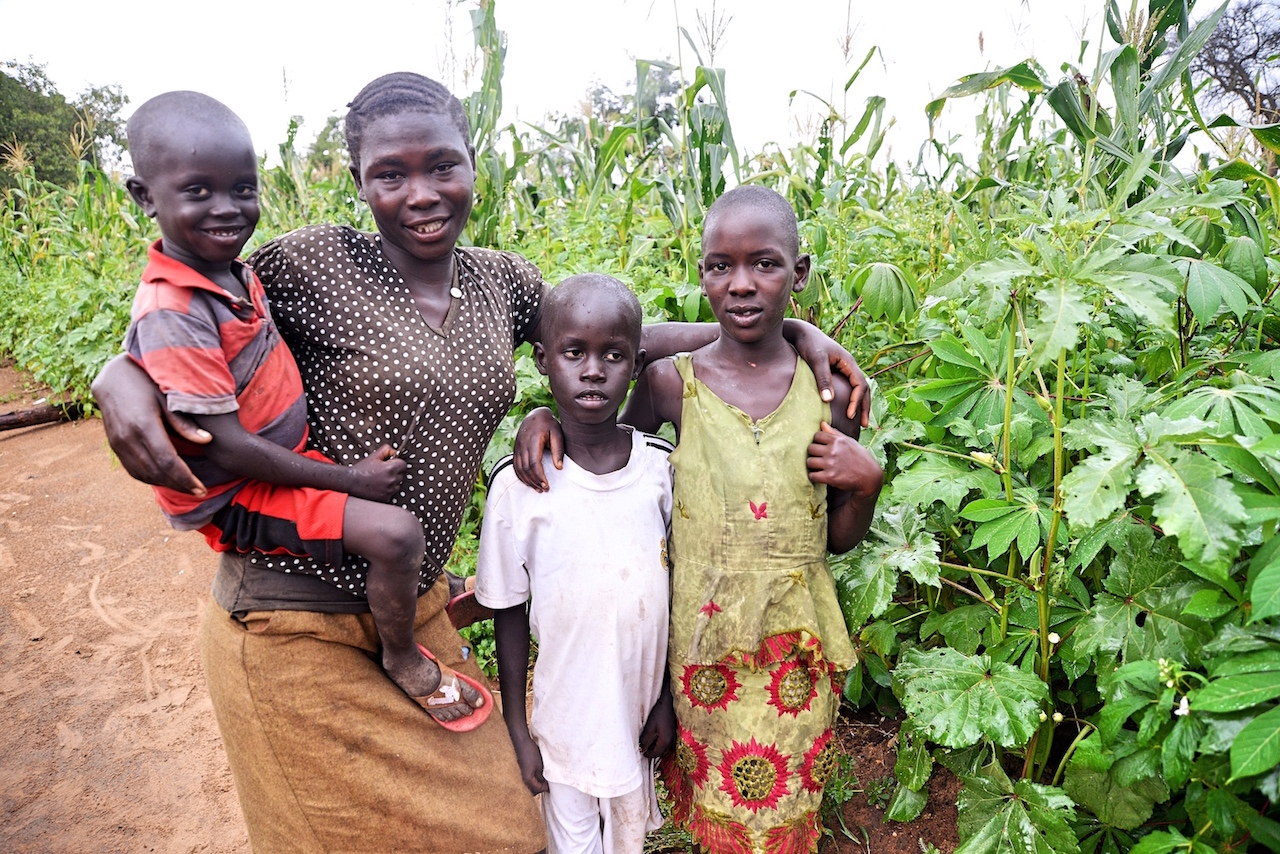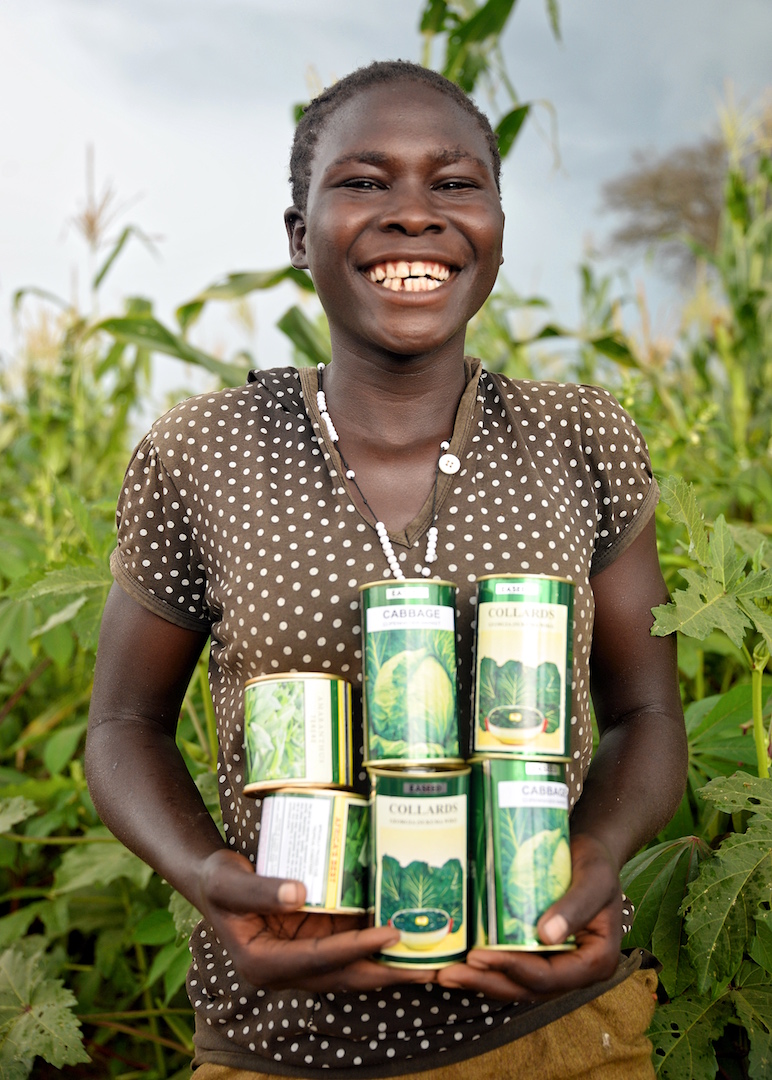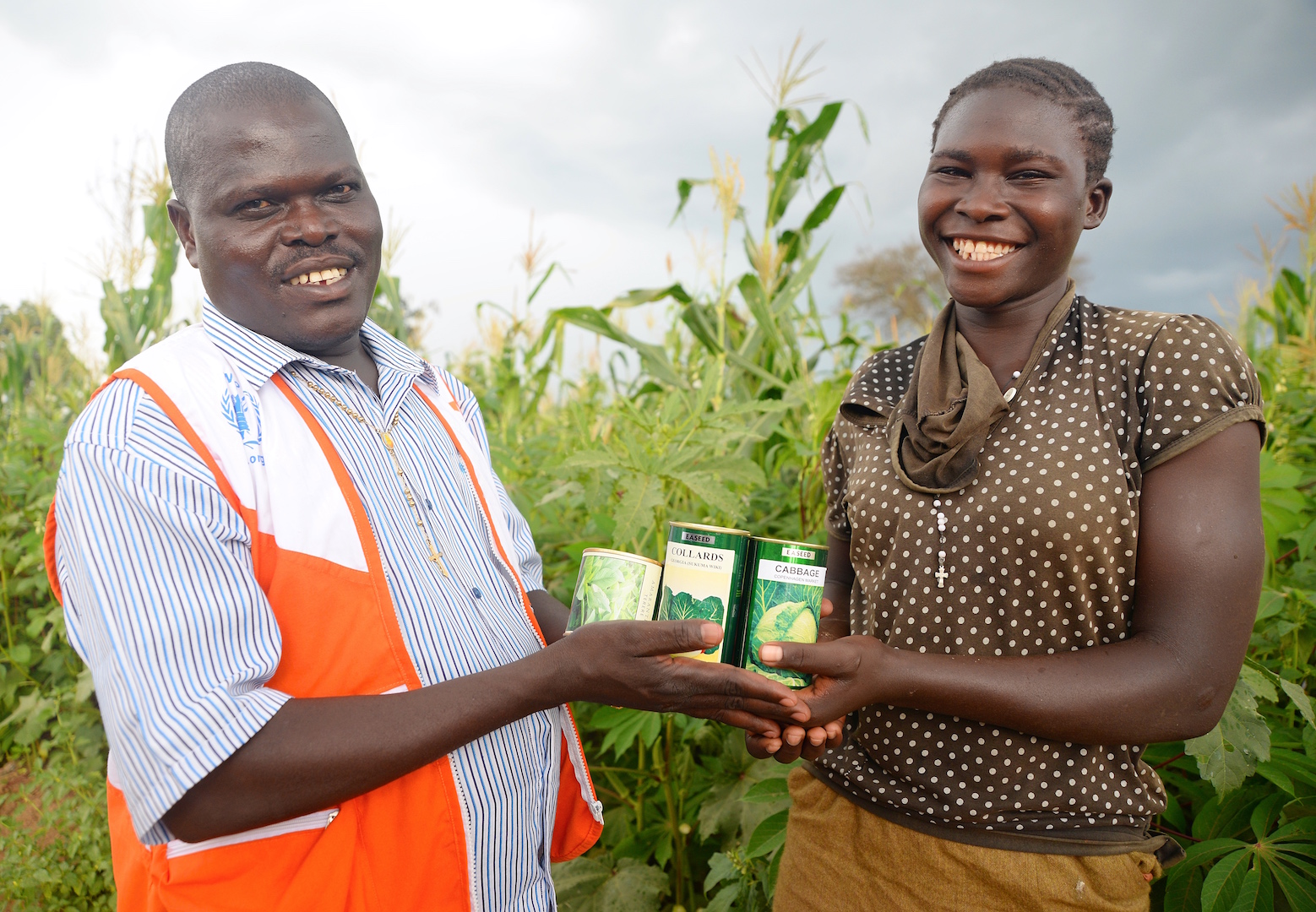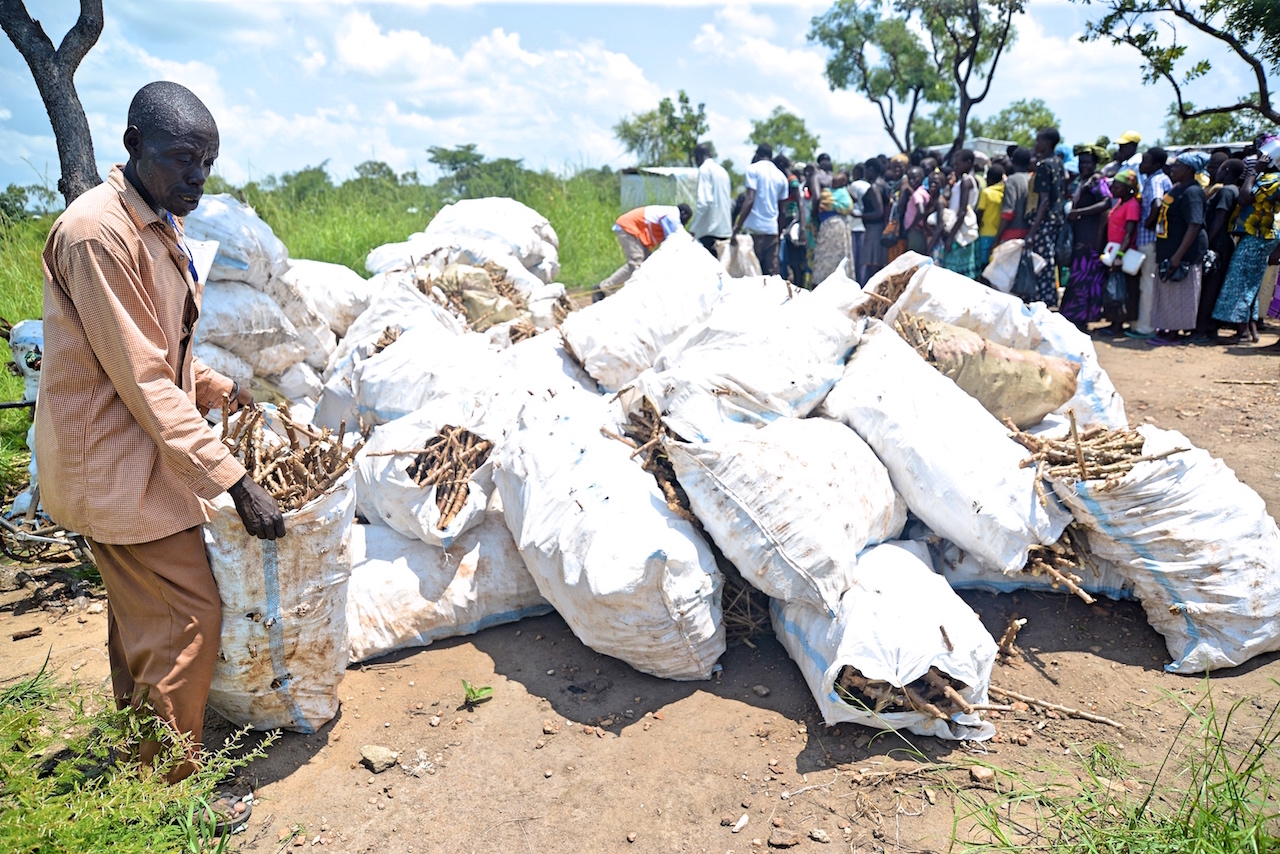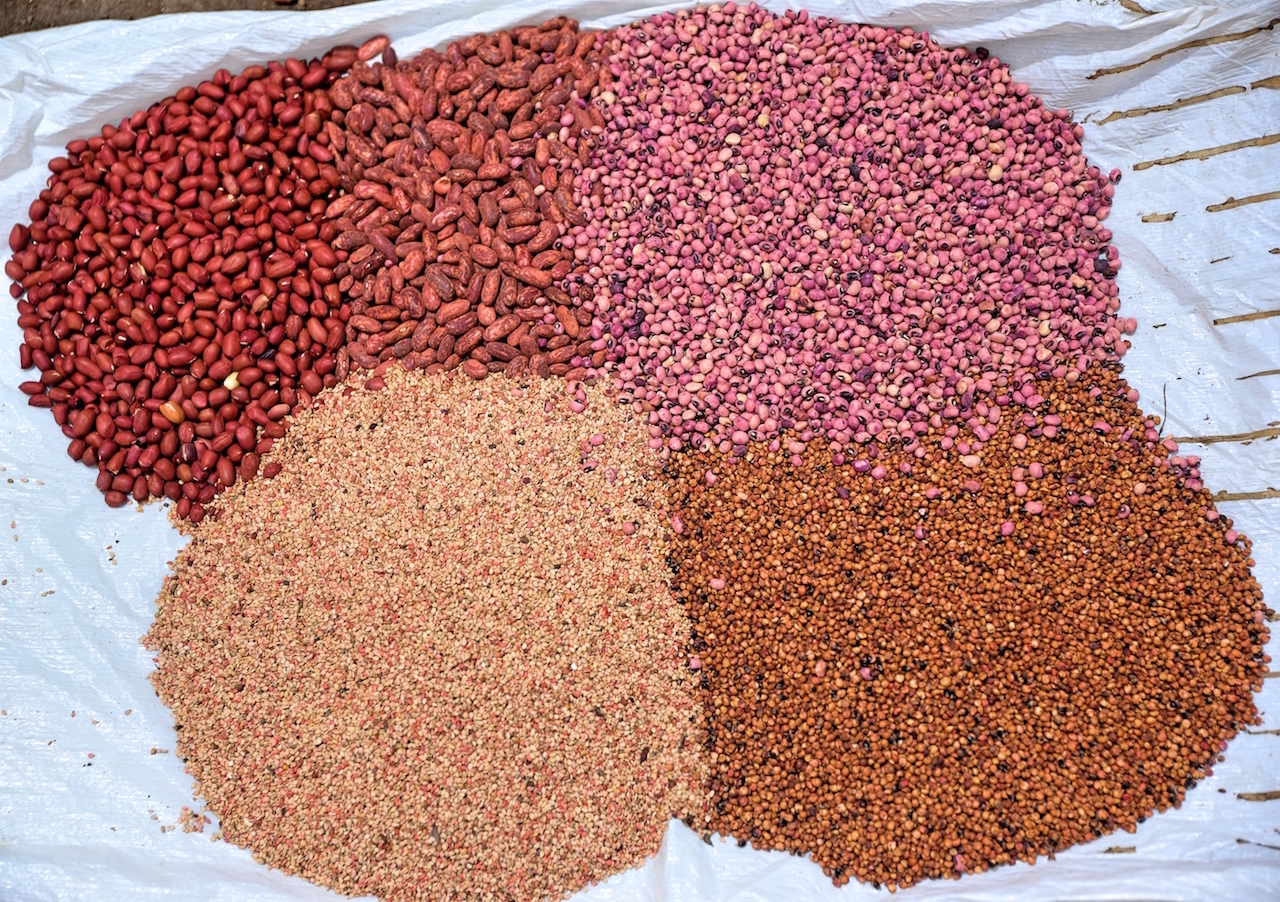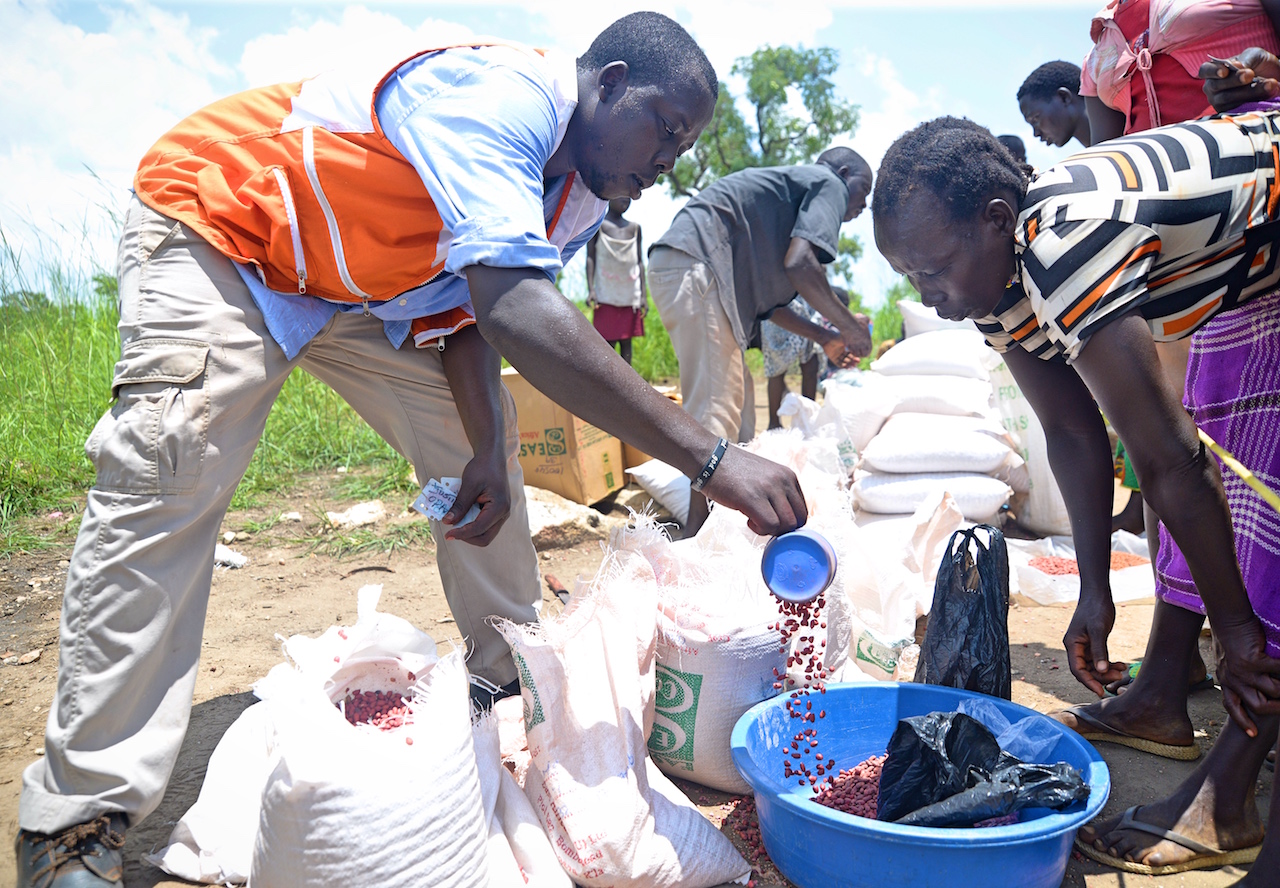Empowering refugees to produce their own food
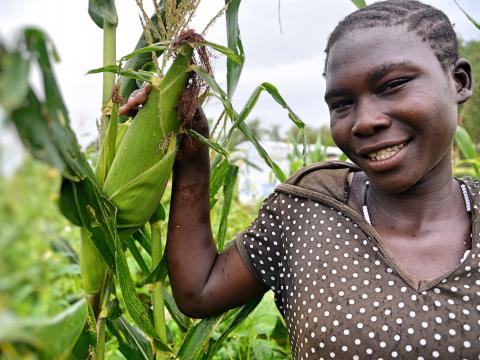
By Moses Mukitale, Communication Coordinator, West Nile Refugee Response
In the last year, more proverbial rocks have been hurled at 18-year-old Betty than she could have ever imagined.
Her home was attacked, her mother abandoned their family and she fled her country. She arrived in northern Uganda with her three younger siblings in March 2017.
Life hasn’t been easy. While Betty has been able to enrol in school, she’s also been tasked with cooking and cleaning, washing clothes and fetching water. There is never a moment to be idle and rest, always more to do.
Here, like the thousands of other refugees, Betty’s family has relied on food rations: bags of hard beans, corn soya blend, a small quantity of salt and a bit of oil. The ingredient make the same meal day in and day out, no variation.
Betty’s father has also accompanied the family, but his focus is on finding an odd job to bring in a bit of money for the family. He’s often not successful. Instead, Betty’s family often sell off part of their food ration – leaving them eating just one meal per day.
It’s hardly the life an 18-year-old dreams of – or that encourage the healthy development of her 4 year old brother, 8 year old brother and 10 year old sister .
Sadly, the challenges Betty’s family experiences are far from isolated.
The majority of South Sudanese refugees in Imvepi settlement – where Betty’s family lives – are unemployed. A May 2017 inter-agency livelihoods assessment report conducted by World Vision, UNHCR and Caritas International, found that 58% of refugees at Imvepi settlement were not engaged in any form of economic activity and relied entirely on food assistance for survival.
To ensure families have more diverse diets and more food, World Vision has distributed a variety of high-yielding, drought resistant seeds to refuge families, thanks to support from UNHCR.
More than 3,000 refugees and host community members at Imvepi refugee settlement have been provided maize, cabbages, okra, beans, sorghum, cassava, tomatoes, onions, and sesame seeds in the months of August and September 2017.
Betty’s family is among the recipients.
A visit to Betty’s plot clearly demonstrates that the seeds were put to good use. The maize is almost ready for harvest, while some of the Okra is already being eaten. Betty says the crops have given them more food to eat and that the family is now able to have 3 meals a day.
“My siblings and I love Okra. And we grew a lot of it in our plot. Sometimes we do not eat beans at all for close to 3 days. This is because of the availability of okra. We have not yet harvested the maize but I am sure we shall be able to sell some of it and use the money to buy basic household needs. As you can see, our entire plot of land is already full with the crops. The 50x50 meters is too small” Betty says.
Silas Simbe is another one of the refugees benefiting from the seeds.
The 48-year-old father of 10 decided to rent farm land from host community in order to have more produce.
Silas, a former coffee farmer in South Sudan says he rents one acre of land per farming season at UGX10,000 (USD$3). A farming season normally stretches for three to five months, depending on the crops one has grown.
‘’The free land we are being given is not enough for someone to carry out commercial farming. You can only grow crops for domestic use. But there is available land for hire from host communities if one has money. Currently am renting one acre for one season. Each acre is at UGX 10,000 I have planted maize, beans, simsim, ground nuts and now am going to add cassava,’’ explains the 48-year-old.
When crops are harvested, they will provide Silas’ family with enough income to supply for their needs.
Providing seeds to refugees is a sustainable solution for food security, says World Vision’s resilience and livelihoods officer in the West Nile region Victor Ajuma.
Ajuma adds it is very important for refugees to produce their own food given the constant funding shortfalls for food rations.
“We cannot guarantee that the monthly food rations will be constant all the time. That is why we want to empower refugee communities to produce their own food and also make sure their household incomes are boosted. Beyond providing these seeds, we have also given youths groups some ox ploughs and oxen to enable them clear their farm lands” explains Victor.
World Vision is also offering agricultural extension trainings to various youth’s groups at Imvepi refugee settlement. Plans are underway to extend the programme to the newly opened Omugo refugee settlement.
